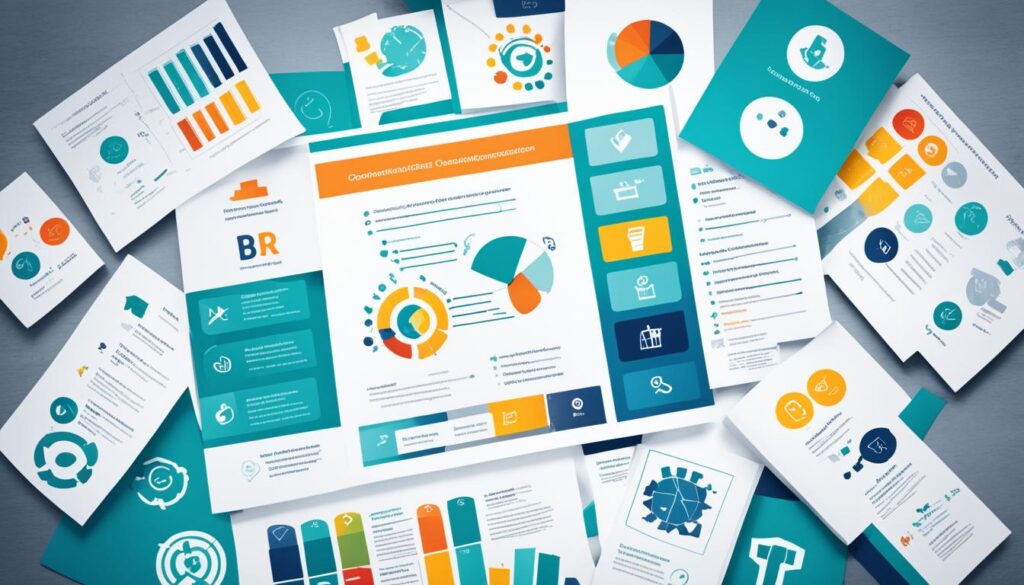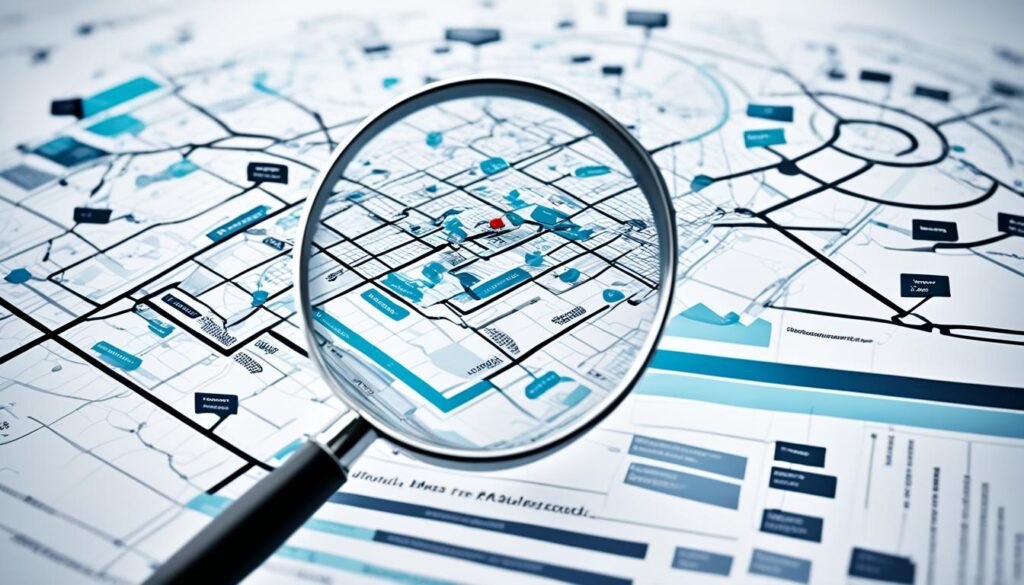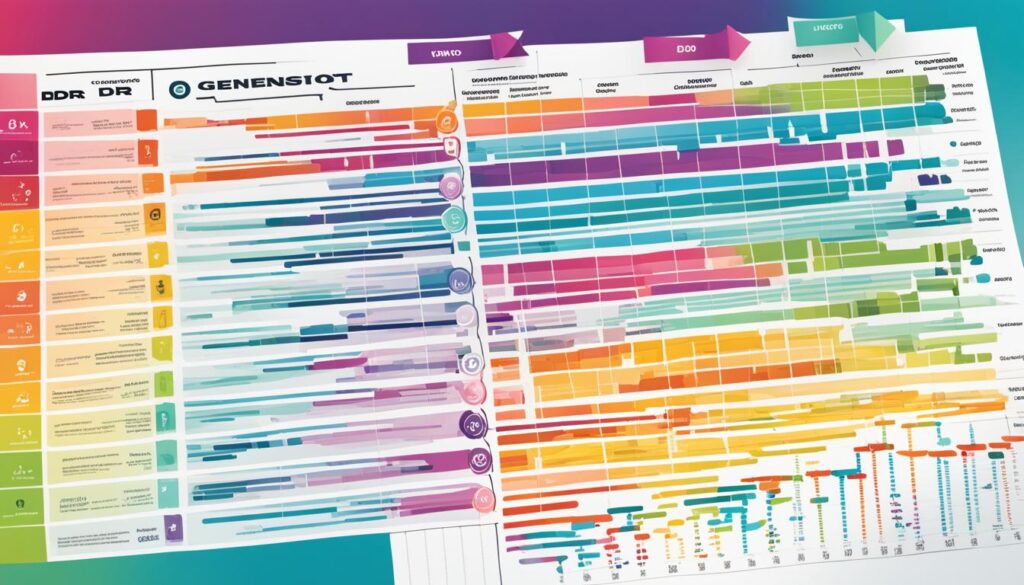A Business Development Representative (BDR) plays a critical role in driving sales and accelerating growth within dynamic markets. They are responsible for qualifying leads, contacting potential clients, and presenting the company to potential customers. This article will explore the specific responsibilities and skills required for a BDR position, as well as the value they bring to a business.
Key Takeaways
- A BDR is responsible for qualifying leads and presenting the company to potential customers.
- Effective communication and relationship-building skills are crucial for a BDR’s success.
- A BDR contributes to the long-term growth of a business by expanding the customer base.
- Measuring BDR success can be done through sales metrics and data analysis.
- BDRs and Sales Development Representatives (SDRs) have different focuses within the sales process.
What is a Business Development Representative (BDR)?
A Business Development Representative (BDR) is someone who seeks new business opportunities for a company by contacting and developing relationships with potential customers. They act as a liaison between the Marketing and Sales teams, using their communication skills to cultivate strong relationships with customers from initial contact to closing the deal. BDRs are motivated, results-driven individuals who contribute to the long-term business growth.
A successful BDR knows how to identify potential customers and engage them in meaningful conversations that uncover their needs and pain points. They are skilled in building rapport and trust, allowing them to present the company’s products or services in a compelling manner. By understanding the customer’s requirements, BDRs are able to propose tailored solutions that address their specific challenges.
“As a BDR, your role is to pave the way for business growth. Through your proactive outreach and relationship-building efforts, you create opportunities for the Sales team to close deals and expand the company’s customer base.”
BDRs leverage various channels such as cold calling, emails, and networking events to initiate contact with potential clients. They are persistent in their follow-ups and ensure that every lead is nurtured effectively throughout the sales process. BDRs also collaborate closely with Marketing to align strategies and share insights gained from customer interactions, contributing to the continuous improvement of marketing campaigns and lead generation efforts.
- Proactively seek new business opportunities
- Cultivate relationships with potential customers
- Promote company products or services
- Identify customer needs and propose solutions
- Collaborate with Marketing and Sales teams
The role of a BDR is vital in driving business success. By creating and nurturing customer relationships, they enhance the company’s reputation, expand its market reach, and contribute to increased revenue and sustained growth.
Responsibilities of a Business Development Representative
A Business Development Representative (BDR) plays a vital role in driving business growth by identifying and seizing sales opportunities. As a BDR, your responsibilities encompass a range of tasks that contribute to customer acquisition and the overall success of the sales process.
One of your key responsibilities is qualifying leads that have been generated through marketing campaigns. You will evaluate these leads and determine if they have the potential to become viable sales opportunities. By carefully assessing their fit with your company’s offerings, you play a crucial role in identifying leads that are worth pursuing.
To ensure effective lead generation, you will proactively contact potential clients through various channels, such as cold calls and emails. This initial outreach allows you to present your company and start building relationships with potential customers. Your communication skills will be vital in successfully engaging leads and conveying the value proposition of your products or services.
As a BDR, part of your responsibility involves identifying and understanding the needs of potential clients. By actively listening and asking relevant questions, you can uncover their pain points and suggest appropriate product or service solutions that address their specific requirements. This personalized approach increases the likelihood of customer satisfaction and helps to build long-term trusting relationships with clients.
Aside from nurturing existing leads, you will also be responsible for seeking out new business opportunities. With your proactive mindset, you actively research and explore potential markets, industries, or sectors that align with your company’s target audience. By staying ahead of emerging trends and identifying untapped sales prospects, you contribute to expanding your customer base and driving overall sales growth.
Once a lead has been qualified and is ready for further engagement, you play a crucial role in setting up meetings or calls between clients and Account Executives. This ensures a smooth handover of the lead to the appropriate sales personnel, who can then proceed with the sales process. Your ability to facilitate efficient communication and collaboration within the sales team is essential for streamlining operations and maximizing sales effectiveness.
Lastly, as a BDR, you are responsible for reporting sales results to the Business Development Manager. This involves tracking and analyzing key sales metrics, such as the number of qualified leads, conversion rates, and revenue generated. By providing accurate and timely sales data, you enable data-driven decision-making and contribute to the continuous improvement of the business development process.
These are just a few of the core responsibilities that form part of a Business Development Representative’s role. By effectively fulfilling these duties, you play a pivotal role in driving sales opportunities and customer acquisition, ultimately contributing to the overall growth and success of the business.
Required Skills and Qualifications for a BDR
A successful BDR (Business Development Representative) possesses a diverse range of skills and qualifications that are essential for excelling in this role. Whether it’s leveraging effective sales techniques, utilizing CRM software, or showcasing strong communication skills, a skilled BDR is a valuable asset to any business. Here are the key requirements for becoming a successful BDR:
- Proven work experience: A BDR should have prior work experience in business development or a related field, demonstrating their ability to drive sales and achieve targets.
- Hands-on experience with sales techniques: It is important for a BDR to be adept at utilizing various sales techniques, including cold calling, to initiate and close deals effectively.
- Track record of achieving sales quotas: A successful BDR consistently meets or exceeds sales quotas, demonstrating their ability to deliver results and contribute to business growth.
- Familiarity with CRM software: Proficiency in using CRM (Customer Relationship Management) software allows BDRs to efficiently manage and track their interactions with potential clients, improving their overall productivity.
- Proficiency in MS Excel: BDRs should possess strong MS Excel skills to analyze spreadsheets and charts, helping them identify trends, forecast sales, and make informed decisions.
- Understanding of sales performance metrics: BDRs must have a solid understanding of sales performance metrics, enabling them to track their progress, identify areas for improvement, and optimize their strategies accordingly.
- Excellent communication and negotiation skills: Effective communication and negotiation skills are crucial for BDRs to build relationships with potential clients, clearly convey product/service benefits, and close deals successfully.
- Ability to deliver engaging presentations: BDRs should be capable of delivering compelling and engaging presentations to pitch products/services, captivate the audience, and ultimately persuade potential clients to move forward with the company.
- Relevant degree in Marketing or Business Administration: While not always a strict requirement, a relevant degree in Marketing or Business Administration can provide BDRs with a solid foundation of knowledge and skills to excel in their role.
By possessing these skills and qualifications, a BDR can effectively contribute to lead generation, customer acquisition, and overall business success. With the right blend of expertise and experience, a skilled BDR is an invaluable resource for driving sales and promoting business growth.

The Role of a BDR in Business Development
Business Development Representatives (BDRs) play a crucial role in the business development process. They are responsible for lead generation, reaching out to potential clients through various channels, and identifying sales opportunities. BDRs work closely with the Sales team to develop effective sales strategies, manage the sales pipeline, and convert leads into customers. They contribute to the overall growth of the business by expanding the customer base and increasing sales.
- Lead Generation: BDRs are actively involved in generating new leads for the business. They utilize their sales prospecting skills to identify potential customers who have shown interest in the company’s products or services.
- Sales Prospecting: BDRs conduct thorough research to identify potential clients and reach out to them through various channels, such as phone calls, emails, and social media platforms. They initiate contact and engage in meaningful conversations to understand client needs.
- Sales Strategy: BDRs collaborate with the Sales team to develop effective sales strategies. They analyze market trends, customer behavior, and competition to identify the best approach for generating sales and achieving targets.
- Sales Pipeline: BDRs play a critical role in managing the sales pipeline. They ensure that leads progress smoothly through the different stages of the sales process and follow up with potential clients to nurture relationships and move deals forward.
- Sales Conversion: BDRs focus on converting leads into customers. They employ persuasive communication skills and product knowledge to highlight the value of the company’s offerings, address client concerns, and ultimately close sales.
BDRs not only contribute to the immediate success of the Sales team but also play a vital role in driving the long-term growth and profitability of the business.

The Value of BDRs to a Business
BDRs play a crucial role in driving business expansion, improving market reach, and driving sales growth. With their unique skill set and expertise, they provide significant value to companies looking to achieve long-term success.
One of the primary contributions BDRs make is helping companies identify new business opportunities. By actively prospecting and seeking out potential clients, BDRs play an essential role in expanding the company’s offerings and customer base.
In addition to identifying new opportunities, BDRs also play a vital role in developing strategies to improve market reach. They leverage their communication skills and market knowledge to establish partnerships and build relationships with key stakeholders. These efforts not only enhance the company’s reputation but also increase its visibility in the market, attracting new customers and driving growth.
Furthermore, BDRs’ involvement in data analysis and internal practices is instrumental in improving sales performance. By analyzing sales data and customer feedback, BDRs enable companies to make data-driven decisions and refine their sales strategies. This continuous improvement process leads to increased sales effectiveness, better customer satisfaction, and overall business growth.
By harnessing the expertise of BDRs, companies can tap into new business opportunities, expand their market reach, and achieve sustainable sales growth.

Differences Between BDRs and SDRs
While there may be some overlap in activities, BDRs and Sales Development Representatives (SDRs) typically focus on different aspects of the sales process.
BDRs primarily work on outbound opportunities, such as cold calling and email prospecting, to actively reach potential customers and generate leads. Their role involves identifying and qualifying prospects who have not yet engaged with the company, showcasing the value of the product or service, and initiating the sales process.

SDRs, on the other hand, specialize in managing inbound leads. They focus on nurturing prospects who have already expressed interest, responding to inquiries, and guiding potential customers through the sales funnel. SDRs often act as the first point of contact for inbound leads, providing information, addressing questions, and setting up appointments with Account Executives.
While both roles contribute to the overall sales effort, BDRs play a key role in creating sales prospecting tools and strategies. They leverage their expertise to identify new outbound opportunities, develop targeted outreach campaigns, and refine the sales approach.
BDRs bring a proactive approach to the sales process. Their focus on outbound opportunities helps businesses expand their reach, engage with potential customers, and increase the chances of converting leads into valuable clients.
On the other hand, SDRs excel in cultivating relationships and guiding leads through the sales funnel. They build rapport with inbound prospects, understand their needs, and provide personalized guidance to move them towards making a purchase decision.
By leveraging the distinct strengths of both BDRs and SDRs, businesses can effectively cover both outbound and inbound opportunities, ensuring a comprehensive approach to sales and lead generation.
How to Measure BDR Success
When it comes to assessing the success of your Business Development Representatives (BDRs), data analysis and sales metrics are essential tools. By tracking key performance indicators (KPIs) and analyzing the data, you can gain insights into the effectiveness of your BDR team and make data-driven improvements to your sales strategies.
To measure the success of your BDRs, consider tracking the following metrics:
- Number of Qualified Leads: Monitor the number of leads that your BDRs successfully qualify. This metric reflects their ability to identify potential customers who are most likely to convert into sales.
- Sales Conversion Rates: Assess how well your BDRs are converting leads into customers. This metric provides valuable insights into the effectiveness of their sales techniques and strategies.
- Revenue Generated from BDR-Initiated Leads: Calculate the revenue generated from leads that were initially pursued by your BDRs. This metric highlights the direct impact of their efforts on the company’s sales performance.
- Overall Impact on Sales Performance: Evaluate the overall contribution of your BDR team to the company’s sales growth. Consider factors such as increased customer acquisition, expanded market reach, and overall revenue generated.
Once you have collected the necessary data, leverage data analysis techniques to gain insights and identify areas for improvement. Analyzing the metrics can help you identify patterns, trends, and potential bottlenecks in your BDRs’ performance. Use these insights to refine your sales strategies, provide targeted training, and enhance the effectiveness of your BDR team.
Remember, measuring BDR success is an ongoing process. Regularly revisit and update your metrics to align with your business goals and objectives. By continuously monitoring and analyzing key metrics, you can ensure the ongoing success and growth of your BDR team.

Conclusion
Business Development Representatives (BDRs) are the driving force behind business growth and sales success. Their role in lead generation, customer acquisition, and overall business expansion cannot be overstated. With their expertise in sales techniques, effective communication, and relationship-building, BDRs are invaluable assets to companies striving to accelerate sales and achieve long-term success.
Implementing effective strategies and measuring performance are key to harnessing the full potential of a BDR team. By setting clear goals, tracking key performance indicators, and analyzing data, businesses can optimize their sales efforts and drive sustainable growth. From qualifying leads and presenting products/services to building long-term relationships with clients, BDRs play a pivotal role in the success of any sales-driven organization.
As businesses continue to evolve in a highly competitive landscape, it is essential to invest in skilled BDRs who can navigate the complexities of the sales process. With their ability to identify new business opportunities, expand market reach, and drive revenue growth, BDRs contribute to the overall success of a company. By recognizing their value and providing them with the necessary training and tools, businesses can empower their BDRs to excel and achieve remarkable sales success.
FAQ
What is a Business Development Representative (BDR)?
A Business Development Representative (BDR) is someone who seeks new business opportunities for a company by contacting and developing relationships with potential customers. They act as a liaison between the Marketing and Sales teams, using their communication skills to cultivate strong relationships with customers from initial contact to closing the deal.
What are the responsibilities of a Business Development Representative?
The responsibilities of a BDR include qualifying leads from marketing campaigns as sales opportunities, contacting potential clients through cold calls and emails, presenting the company to potential clients, identifying client needs and suggesting appropriate products/services, customizing product solutions to increase customer satisfaction, building long-term trusting relationships with clients, proactively seeking new business opportunities, setting up meetings or calls between clients and Account Executives, and reporting sales results to the Business Development Manager.
What are the required skills and qualifications for a BDR?
A successful BDR should have proven work experience in business development or a similar role, hands-on experience with multiple sales techniques including cold calls, a track record of achieving sales quotas, familiarity with CRM software, proficiency in MS Excel for analyzing spreadsheets and charts, understanding of sales performance metrics, excellent communication and negotiation skills, ability to deliver engaging presentations, and a relevant degree in Marketing or Business Administration.
What is the role of a BDR in business development?
BDRs play a crucial role in the business development process. They are responsible for lead generation, reaching out to potential clients through various channels, and identifying sales opportunities. BDRs work closely with the Sales team to develop effective sales strategies, manage the sales pipeline, and convert leads into customers. They contribute to the overall growth of the business by expanding the customer base and increasing sales.
What value do BDRs bring to a business?
BDRs provide significant value to a business by driving business expansion, improving market reach, and driving sales growth. They help the company identify new business opportunities, develop strategies to expand the company’s offerings, and establish partnerships and relationships with key stakeholders. BDRs also contribute to data analysis and improvement of internal practices, resulting in better sales performance and overall business growth.
What are the differences between BDRs and SDRs?
While there may be some overlap in activities, BDRs and Sales Development Representatives (SDRs) typically focus on different aspects of the sales process. BDRs primarily work on outbound opportunities, such as cold calling and email prospecting, while SDRs focus on inbound leads. BDRs play a key role in creating sales prospecting tools and strategies, while SDRs excel in cultivating relationships and guiding leads through the sales funnel.
How can you measure BDR success?
The success of BDRs can be measured using various sales metrics and data analysis. Key performance indicators (KPIs) may include the number of qualified leads, sales conversion rates, revenue generated from BDR-initiated leads, and the overall impact on the company’s sales performance. By tracking these metrics and analyzing data, businesses can assess the effectiveness of their BDR team and make data-driven improvements to their sales strategies.
